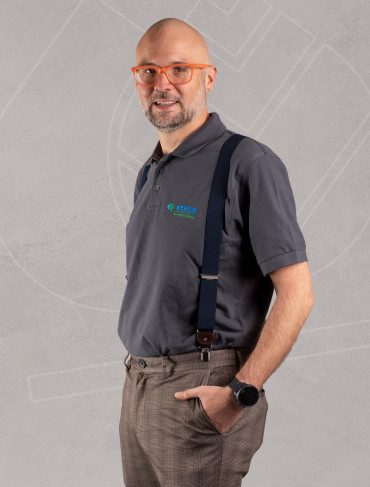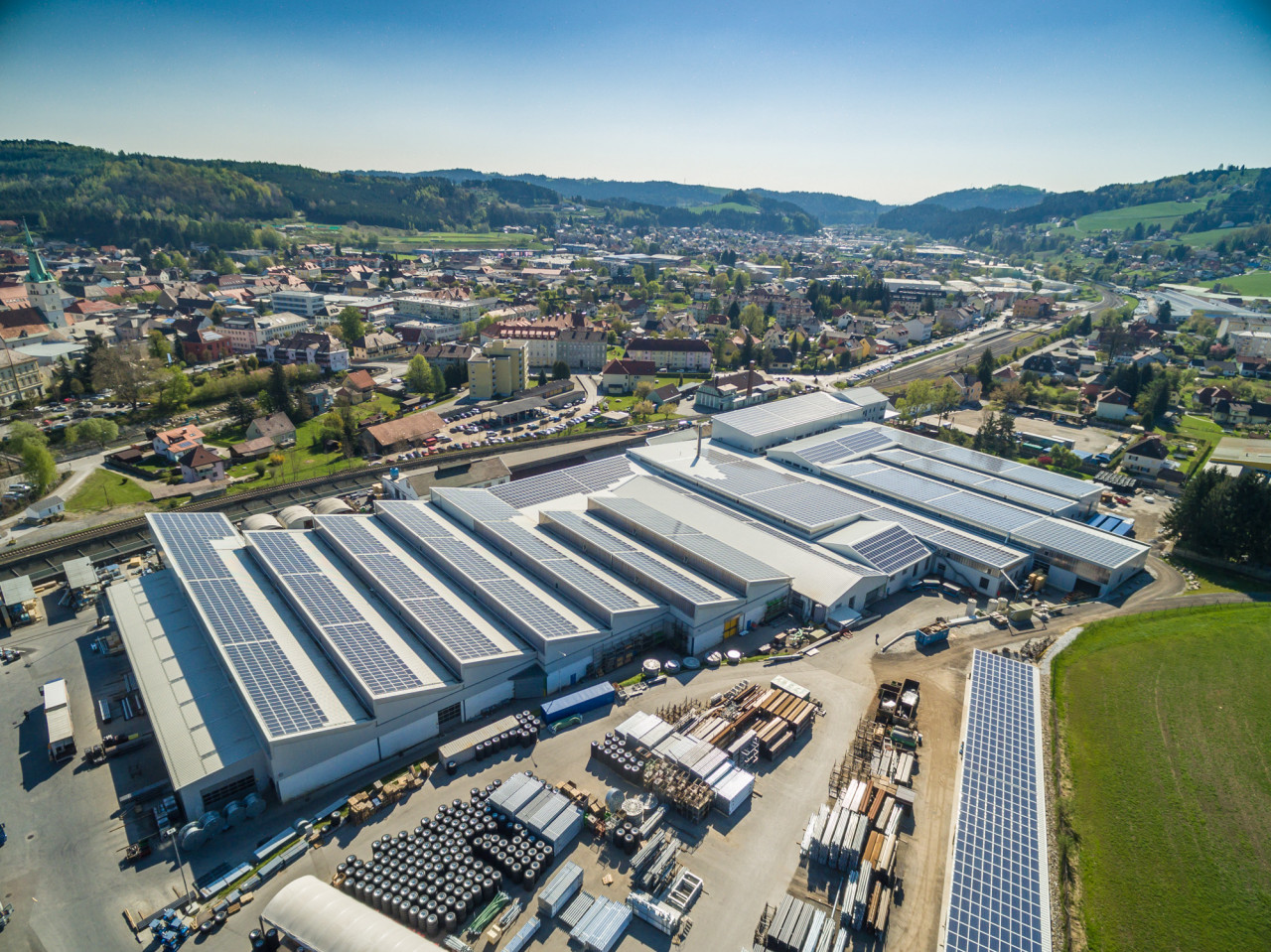
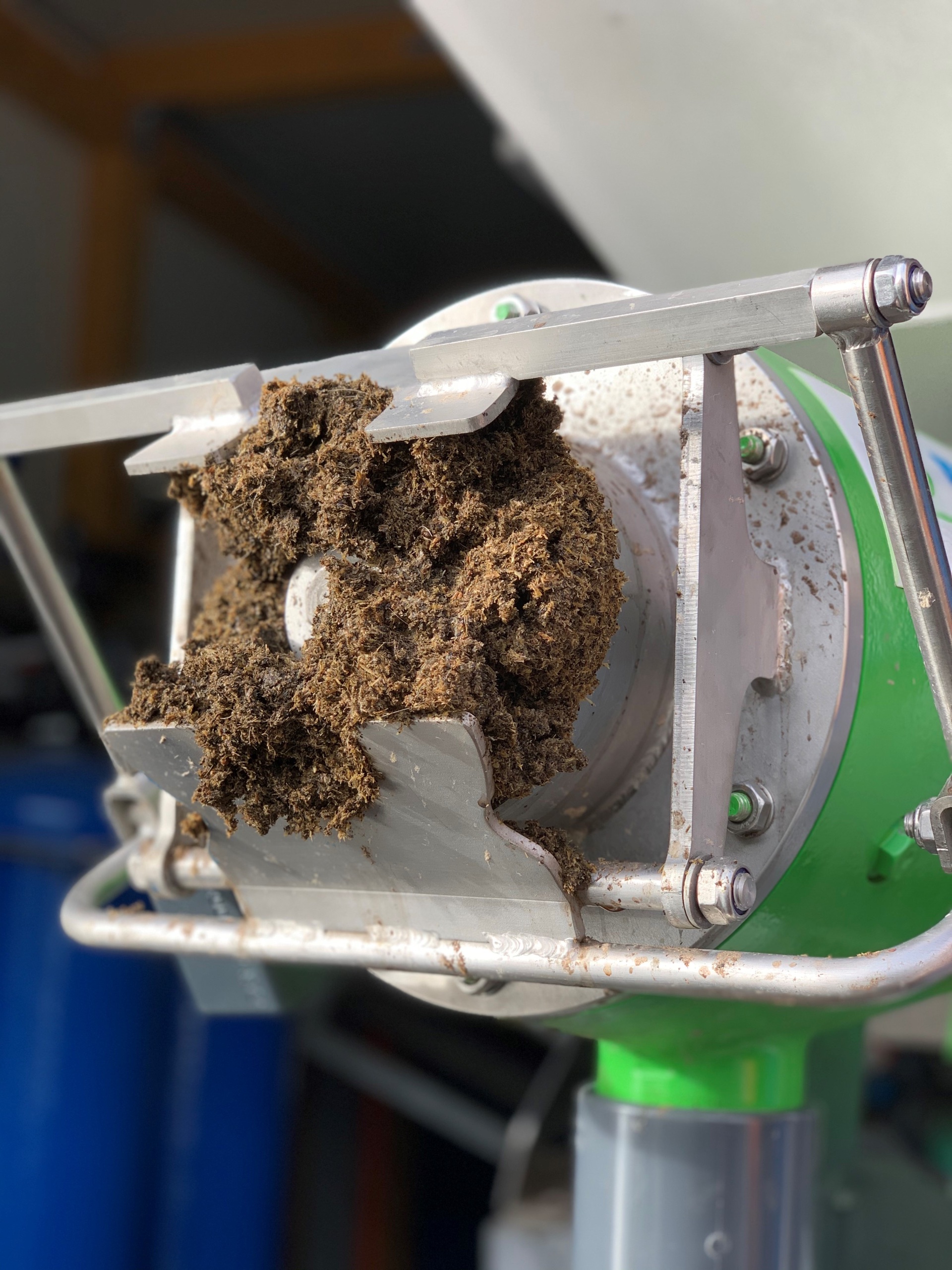
The S300 is the separator of choice for small farms with a livestock of 30 animals or more. It achieves a throughput of up to 16 m³ of substrate per hour. The low purchase costs, the uncomplex design and the high quality of components make the S300 a sensible investment for farms of this size.
The smallest BAUER separator only requires a connection of 2.2 kW and achieves a throughput of around 3-5 m³ per hour with cattle slurry with a dry matter content of 7-9%. The dry matter content in the solids produced is up to 32% which makes it ideal for stacking and storage. For pig slurry, the S300 processes up to 12-14m³ per hour. It is also frequently used for substrate production in biogas plants.
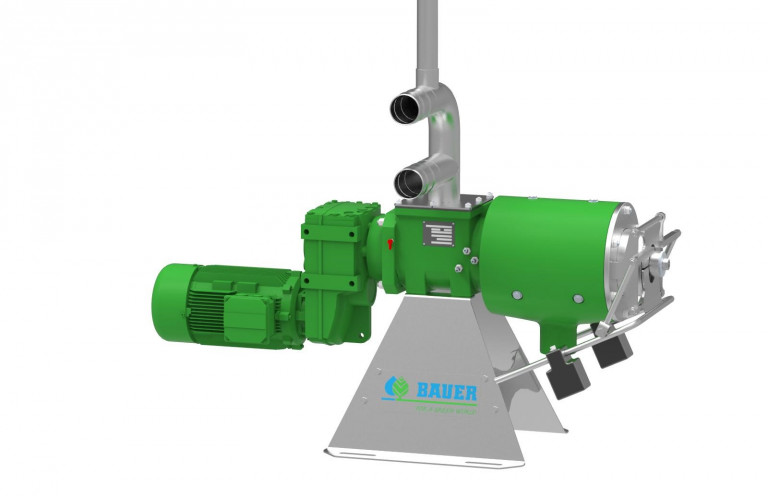
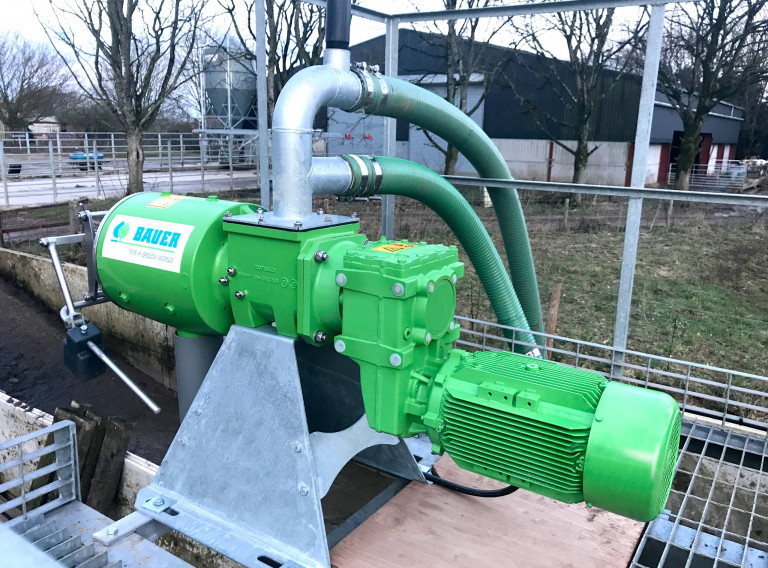
Dimensioned only 1.3 x 0.5 m, with a height of less than 90 cm (including overflow hose and galvanised frame), the S300 weighs only 220 kg and thus more than lives up to its role as a compact separator. Thanks to the screw with a high-quality wear-resisting layer and the floating screen bearing, even long operating times pass by with virtually no wear on the S300. The screw installed is driven by a 2.2 kW electric motor running at 400V / 50Hz. The frequency converter controls available as an option, allow operation with other voltages and on the single-phase mains, ensuring thus worldwide use.
Like its larger siblings, the S300 is made of the highest quality materials, guaranteeing maximum reliability.
The S300 is appropriate for cattle and pig slurry but also for substrate production in biogas plants.
A prerequisite for optimum separation is always a well homogenised slurry so that the separator is always supplied with the same consistency.
It is possible to use screen baskets with five different openings from 0.25 to 1.00 mm.
In addition, the S300 can be equipped with different accessories such as control units, frequency converters etc.
| Throughput,, m3/h | Dry matter content, % | Input power, kW | Screen sizes, mm |
|---|---|---|---|
| up to 16 | 32 | 2,2 | 0,25 - 0,5 - 0,75 - 1,0 |
